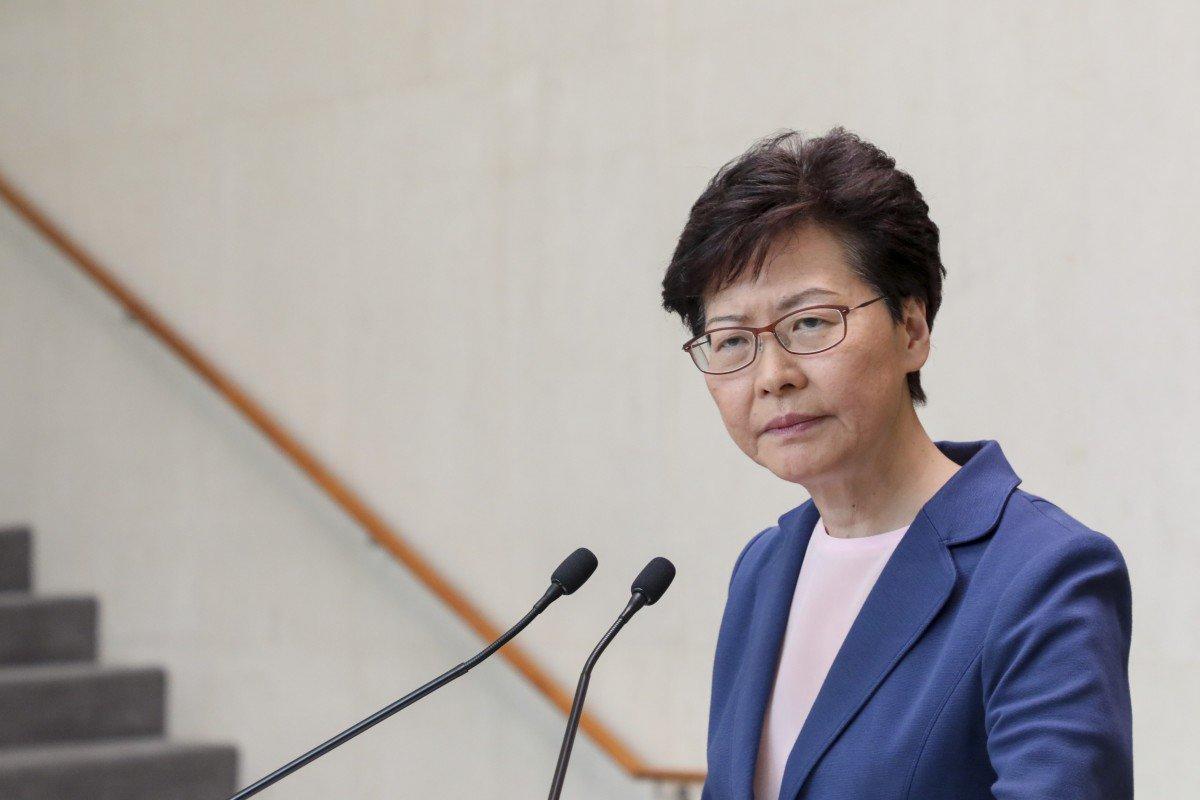In an unexpected, if not outright bizarre concession by Beijing to protesters, on Tuesday morning Hong Kong leader Carrie Lam gave her strongest pledge yet when she declared the highly unpopular extradition bill that sparked several mass protests was “dead”, changing from an earlier script that it “will die” in 2020, according to the SCMP.
Climb down. For #HongKong government – and, in turn, Beijing – at least for now. #China (News flashes below) pic.twitter.com/s1faRfpu4H
— Eunice Yoon (@onlyyoontv) July 9, 2019
“I have almost immediately put a stop to the (bill) amendment exercise, but there are still lingering doubts about the government’s sincerity, or worries whether the government will restart the process in the legislative council, so I reiterate here: There is no such plan, the bill is dead.”
Addressing the month-long drama during a news conference, she reiterated that there is no plan to restart the legislation, describing the work to amend the bill as a “total failure.” Meanwhile, she said she would take full responsibility for what has happened in the city, according to a translation of her address.
However, just like Erdogan’s surprisingly muted reaction to the loss of Istanbul in the local election re-run two weeks ago was a Trojan horse to the leader’s true intentions, unveiled this past weekend with his sacking of the central bank chief, confirming that nothing has changed and the Turkish “executive president” is digging himself even deeper as the country’s unchecked, executive power, we would urge readers not to read too much into this soundbite: as the SCMP notes, whether the bill was effectively withdrawn – as demanded by protesters – remained unclear, as Lam did not say that she is officially withdrawing the bill, raising questions about to what extent the measure could be revived in the future. Additionally, Lam stood firm on not setting up a top-level probe into clashes between police and protesters. Meanwhile, an independent study will be looking into police behavior during the protests, she said, asking for some time to “improve the current situation.”
Lam noted those concerns in Cantonese remarks, via CNBC.
“What I’m saying today is nothing really different from what I said before. But maybe the citizens need to hear a definitive saying (from me),” Lam said, according to a translation of those comments. “So saying that the extradition bill is now in the coffin is the more definitive way of saying it, which means, the bill is dead. Hence, everyone doesn’t need to worry whether there will be any tactics that the discussion of the bill will resume in this Legislative Council term.”
Yet in a hint that a wave of “behind the scenes” retaliation was coming, Lam said the Independent Police Complaints Council would be launching an investigation, and that all parties involved in the demonstrations, including protesters, police, media and onlookers, could provide information.
Ever the Beijing-trained bureaucrat, the chief executive, speaking before meeting her advisers in the Executive Council, reiterated that the government did not call a protest on June 12, during which there were violent clashes between police and mostly young protesters, a “riot”. And even as she suggested that all those who had “rioted” may be facing penalties, Lam also said she was “willing to engage in an open dialogue with students without any preconditions”, sending a barrage of mixed messages.
Whether this is just a gambit to ease tension in the town where just yesterday a fresh round of protests shut down the main shopping area, or a genuine gesture, student leaders from eight universities balked, and turned down her request for a small-scale and closed-door meeting on Friday, and said they would only talk to Lam if she agreed to their two preconditions: meet them in a town hall-style open meeting and promise to exonerate protesters.
At the same time, protesters have been urging the government to respond to other demands: withdraw the bill completely, retract all references to the protest on June 12 as a riot; set up a commission of inquiry to examine police use of force; and launch democratic reforms. A demand for Lam to resign appears to have gradually faded away.
Lam admitted the public’s trust in the government was fragile, yet said she is “proud of the quality of the Hong Kong people” as demonstrated by the peaceful behavior of the vast majority of protesters. She, however, said “a very small minority of protesters have used the occasion to resort to violent acts and vandalism.”
“We are sad to see these violent acts because they undermine the rule of law in Hong Kong,” she said. “So I make a very sincere plea here, that in the future, if anyone in Hong Kong have any different views — especially those about the Hong Kong government’s policies — please continue to uphold the value of expressing it in a peaceful and orderly manner.”
As the SCMP adds, the weekly Exco meeting is the first at the Chief Executive’s Office since June 11. Last week’s meeting was held at Government House as the administrative headquarters were closed because of the protests. The previous two Exco meetings were cancelled.
Had the bill passed, it would have allowed Hong Kong to transfer suspects to jurisdictions it lacks extradition agreements with, including mainland China. Critics feared it would remove the legal firewall between the city and the mainland, exposing suspects to opaque trials across the border.
Tuesday marks exactly a month since the first mass protest against the bill brought an estimated 1 million people onto the streets on June 9, followed by about 2 million the following weekend.
via ZeroHedge News https://ift.tt/2NKm2sE Tyler Durden
